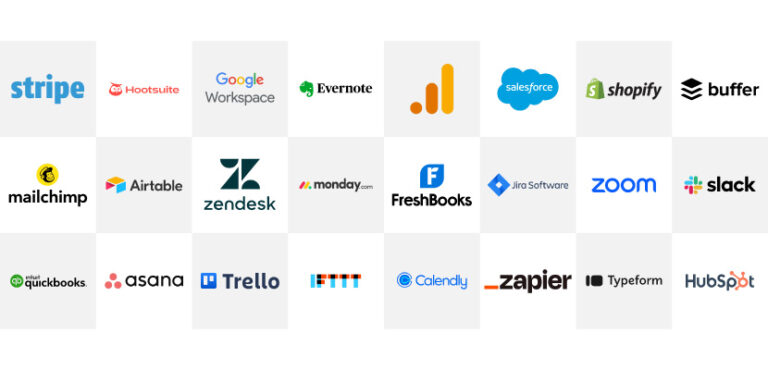Business Automation Tools for Small Companies: Work Smarter, Scale Faster, Save More
Running a small business requires wearing multiple hats marketing, sales, operations, customer service, and beyond. But time is limited, and manual tasks can quickly eat into your productivity and profits. That’s where business automation tools come in. Designed to streamline repetitive tasks, improve accuracy, and give you back valuable hours, these tools empower small companies to operate like larger ones without the headcount. Whether you’re just starting or looking to grow, choosing the right automation software can transform your business operations, reduce errors, and free your team to focus on high-impact work.
Why Automation Is a Game-Changer for Small Businesses
Automation isn’t just a trend it’s a necessity. Small businesses often struggle to compete due to limited time, budget, or personnel. Automation levels the playing field by turning time-consuming tasks like invoicing, email follow-ups, lead management, and social scheduling into set-it-and-forget-it systems. When your back-office processes run automatically, you gain more time to build relationships, innovate, and grow. It also reduces human error and ensures that no lead or task slips through the cracks. Automation means fewer bottlenecks, faster decision-making, and more consistent results all without burning out your team or overextending your resources.
Top Areas Where Automation Makes the Most Impact
Not all processes are equal some are ripe for automation, and others still benefit from a human touch. High-impact areas for small business automation include customer relationship management (CRM), email marketing, invoicing and accounting, inventory tracking, lead capture, and social media posting. For example, tools like Mailchimp or ActiveCampaign can trigger welcome emails or abandoned cart follow-ups automatically. Platforms like QuickBooks can handle recurring invoices and expense tracking. Social schedulers like Buffer or Later keep your content calendar consistent. By automating core tasks, your small business can punch above its weight and deliver big-business performance.
Best Business Automation Tools for Small Companies
The best automation tools for small companies are simple to set up, integrate easily with your existing systems, and deliver immediate results. Zapier is a top choice for connecting different apps without coding, automating everything from lead notifications to spreadsheet updates. HubSpot’s free CRM offers automation features for email sequences, task reminders, and sales pipeline management. Trello and Asana help manage projects through automated workflows and deadline reminders. For finance, tools like FreshBooks or Wave handle recurring invoices and late-payment follow-ups. Choose tools that not only save time but also support your specific industry and growth stage.
How to Choose the Right Automation Tools for Your Business
Don’t chase the latest tool choose the right one for your goals. Start by identifying your most repetitive, time-consuming tasks. Then, look for software that directly addresses those needs and offers integration with the tools you already use. Prioritize platforms with strong support, intuitive dashboards, and affordable pricing tiers that match your business size. Free trials and scalable plans are ideal for testing before committing long-term. Be sure to check for mobile compatibility, data security features, and automation flexibility, especially if your business evolves quickly or operates in a remote-friendly environment.
Common Mistakes to Avoid When Automating Your Business
While automation offers powerful benefits, it’s important not to over-automate or use tools without a strategy. Avoid automating customer communications that require a human touch generic messages can damage trust. Don’t ignore the setup stage; poor configurations often lead to broken processes or duplicate efforts. Another mistake is investing in too many tools that don’t work together this creates more chaos, not less. Automation should simplify, not complicate. Test regularly, monitor results, and optimize your workflows to ensure everything runs smoothly and adds measurable value to your daily operations.
FAQs About Business Automation Tools for Small Companies
Is automation expensive for small businesses?
Not necessarily. Many tools offer free tiers or low-cost plans, making automation highly accessible for startups and lean teams.
Do I need technical skills to use automation tools?
Most modern platforms are user-friendly and require no coding. Tools like Zapier, HubSpot, and Mailchimp offer drag-and-drop interfaces.
What’s the first thing I should automate?
Start with time-consuming, repetitive tasks like email follow-ups, invoicing, or lead tracking these offer quick wins.
Can automation hurt customer relationships?
Only if overused or poorly executed. Blend automation with personal touches to keep engagement high and authentic.
How do I measure the ROI of automation tools?
Track time saved, error reduction, conversion improvements, and cost savings over time to evaluate effectiveness.
